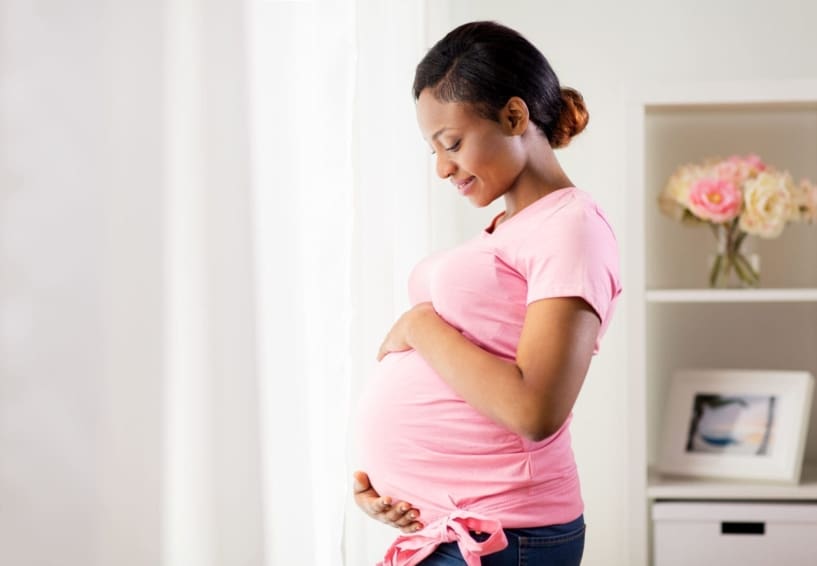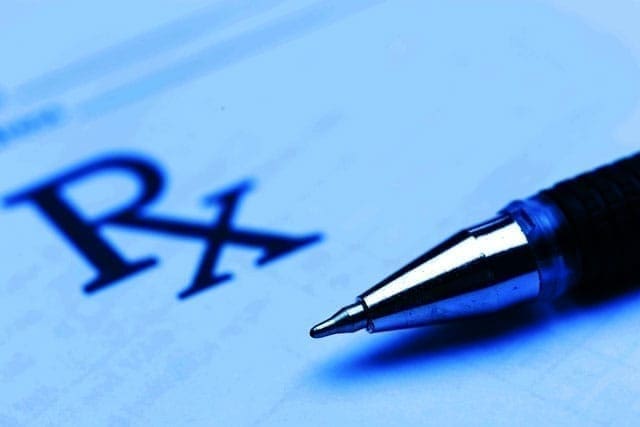
The third trimester is the “home stretch” of your pregnancy. It begins with week 28 of your pregnancy. As your baby grows, your body will feel even more awkward and heavy. Everyday things—like getting out of bed or standing up from a chair—will require extra effort.
Path to improved health
Your body, and your body’s hormones, will affect how you feel during the third trimester.
- The tiredness you felt early in your pregnancy may return. Try to get a good night’s rest and make time for naps if you can.
- You will feel your baby move, especially at the beginning of this trimester. You also may feel the baby drop to a lower position in your belly.
- The “nesting instinct” may kick in. You may feel a need to clean the house or finish getting things ready for baby. Take it slow so you don’t wear yourself out.
- You may feel more emotional as you prepare for labor, delivery, and parenthood.
Your body may experience some physical changes during this trimester.
Swelling/Puffiness
Fluid retention and slowed blood circulation are to blame for swelling in your legs, ankles, feet, hands, and face.
If swelling in your hands and face becomes extreme, call your doctor. Call your doctor right away if you also have a headache, blurred vision, dizziness, and belly pain. These may be signs of a dangerous condition called preeclampsia.
Tingling and numbness
The swelling in your body may press on nerves, causing tingling and numbness. This can happen in your legs, arms, and hands. The skin on your belly may feel numb because it is so stretched out.
Tingling and numbness in the hands usually occurs because of carpal tunnel syndrome. That is caused by pressure on a nerve in the wrist. You may be able to get rid of these symptoms by wearing wrist splints overnight. The problem often improves after pregnancy.
A burning feeling in the lower chest, along with a sour taste in the throat and mouth.
These are bluish, swollen, sometimes painful veins beneath the surface of the skin. They often show up on the backs of the calves or the inside of the legs.
Varicose veins are caused by:
- Pressure your growing uterus puts on the large veins behind it, which slows blood circulation.
- Pregnancy hormones, which cause the walls of veins to relax and possibly swell.
- Constipation, which makes you strain to pass hard bowel movements.
- Increased fluid retention.
These are varicose veins in the rectum. They may stick out of the anus and cause itching, pain, and sometimes bleeding. Ask your doctor about taking a stool softener (not a laxative).
Aching back, pelvis, and hips
This may have started in the second trimester. The stress on your back will increase as your belly grows larger. Your hips and pelvic area may hurt as pregnancy hormones relax the joints between the pelvic bones in preparation for childbirth. Sleeping with a pillow behind your back may help with the pain.
Abdominal pain
Muscles and ligaments (tough, ropelike bands of tissue) in your belly that support the uterus will continue to stretch as your baby grows. They may be painful.
Shortness of breath
As your uterus continues to grow, your lungs will have less room to expand for breathing.
More breast growth
Your nipples may be tender and leak a yellowish liquid, called colostrum. If you breastfeed, this fluid will be your baby’s first food.
Weight gain
You’ll likely add pounds at the beginning of your third trimester. Your weight should even out as you get closer to delivery.
Vaginal discharge
Discharge may increase. If you have fluid leaking or see any blood, call your doctor right away.
Stretch marks
As the baby grows, your skin will get stretched more and more. This may lead to stretch marks. These can look like small lines on your skin. They often appear on your stomach, breasts, and thighs.
Less fetal movement
As your baby continues to grow, he or she will start to run out of room to move around in your uterus. That might make you notice fewer movements during the day. If you’re concerned about lack of movement, call your doctor.


I advise my pregnant patients to prevent Listeria infection by avoiding high-risk foods and following basic food safety guidelines. Read More
Things to consider
Sleeping
As you get bigger, you might have difficulty finding a comfortable sleeping position. You may also find it harder to change positions while sleeping. Side sleeping will be best. Try to fall asleep on your left side. This will help circulation, which is important for the baby. If you wake up, return to that position before going back to sleep. Putting a pillow between your knees or behind your back may make you comfortable.
Sleeping on your back will be uncomfortable because the weight of your baby presses on the veins in your lower back. Also, this can slow the blood flow from the lower body to the heart.
Other things that disrupt sleep may include:
- Nasal congestion, caused by increased blood flow to the mucous membranes in the nose and mouth.
- Heartburn may get worse as your uterus grows, pushing your stomach out of its usual position. Ask your doctor if you can take an antacid, if needed.
- The need to urinate. This is partly due to hormones. And partly due the fact your growing baby is pushing on your bladder.
- Leg cramps, which may be related to the pressure your uterus puts on the nerves and blood vessels that go to your legs.
- Restless leg syndrome, in which you feel a need to move your legs often because of an unpleasant feeling in them.
- Strange dreams, which some women have in the last weeks of pregnancy.
- Your baby’s movements.
Sex
You may lose the desire for sex. That may be because of your size and because you are focused on getting ready for labor, delivery, and parenthood. Sometimes intercourse can lead to uncomfortable contractions in your uterus. It’s still fine to have sex, unless your doctor has told you not to.
Labor
Talk to your doctor about the signs of labor. He or she will tell you what to expect and when to call or go to the hospital. But here are some common changes you may notice.
- Your baby may change position, with his or her head moving down in your pelvis. People may notice your belly is lower and say that you have “dropped.”
- Your cervix (the lower end of your uterus) will begin to thin (effacement) and open (dilate).
- Braxton Hicks contractions (tightening of your uterine muscles) may happen more often and become stronger. This type of contractions can happen throughout the third trimester but get stronger as labor gets closer. They are often a sign labor will be starting soon.
- You may have a constant backache and cramping, diarrhea, and gas before labor begins.
- You will probably be in labor if your contractions seem to happen in a pattern. Also, the time between each contraction will get shorter. Labor contractions are usually more painful than Braxton Hicks contractions. If your contractions are so painful you can’t talk, call your doctor.
- Your “water” may break. This is caused when a tear in the sac that encloses your baby causes fluid to be released. Call your doctor or go to the hospital if you think this has happened. However, for many women, the water doesn’t break until contractions start.
Questions to ask your doctor
- How can I get a good night’s sleep?
- Are there foods I should avoid to eliminate heartburn?
- Is there anything I can put on my stretch marks to make them go away?
- How will I know when I’m in labor?
- When should I go to the hospital?
- After delivery, how long will it be before my body is like it was before pregnancy?
Resources
U.S. Department of Health and Human Services, Office on Women’s Health
![]()
Copyright © American Academy of Family Physicians
This information provides a general overview and may not apply to everyone. Talk to your family doctor to find out if this information applies to you and to get more information on this subject.




